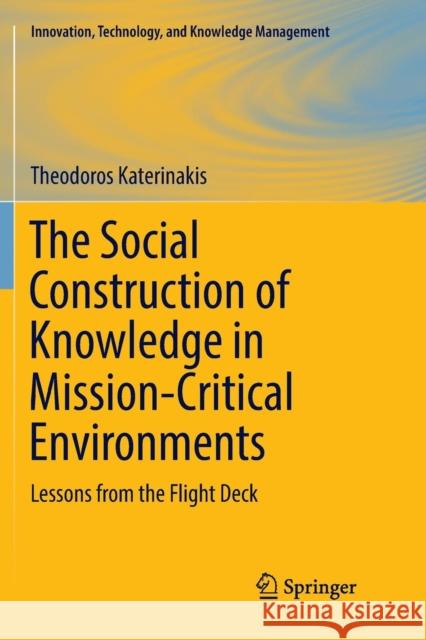The Social Construction of Knowledge in Mission-Critical Environments: Lessons from the Flight Deck » książka
topmenu
The Social Construction of Knowledge in Mission-Critical Environments: Lessons from the Flight Deck
ISBN-13: 9783030081560 / Angielski / Miękka / 2019 / 237 str.
Kategorie:
Kategorie BISAC:
Wydawca:
Springer
Seria wydawnicza:
Język:
Angielski
ISBN-13:
9783030081560
Rok wydania:
2019
Wydanie:
Softcover Repri
Numer serii:
000381722
Ilość stron:
237
Waga:
0.38 kg
Wymiary:
23.39 x 15.6 x 1.45
Oprawa:
Miękka
Wolumenów:
01
Dodatkowe informacje:
Wydanie ilustrowane











